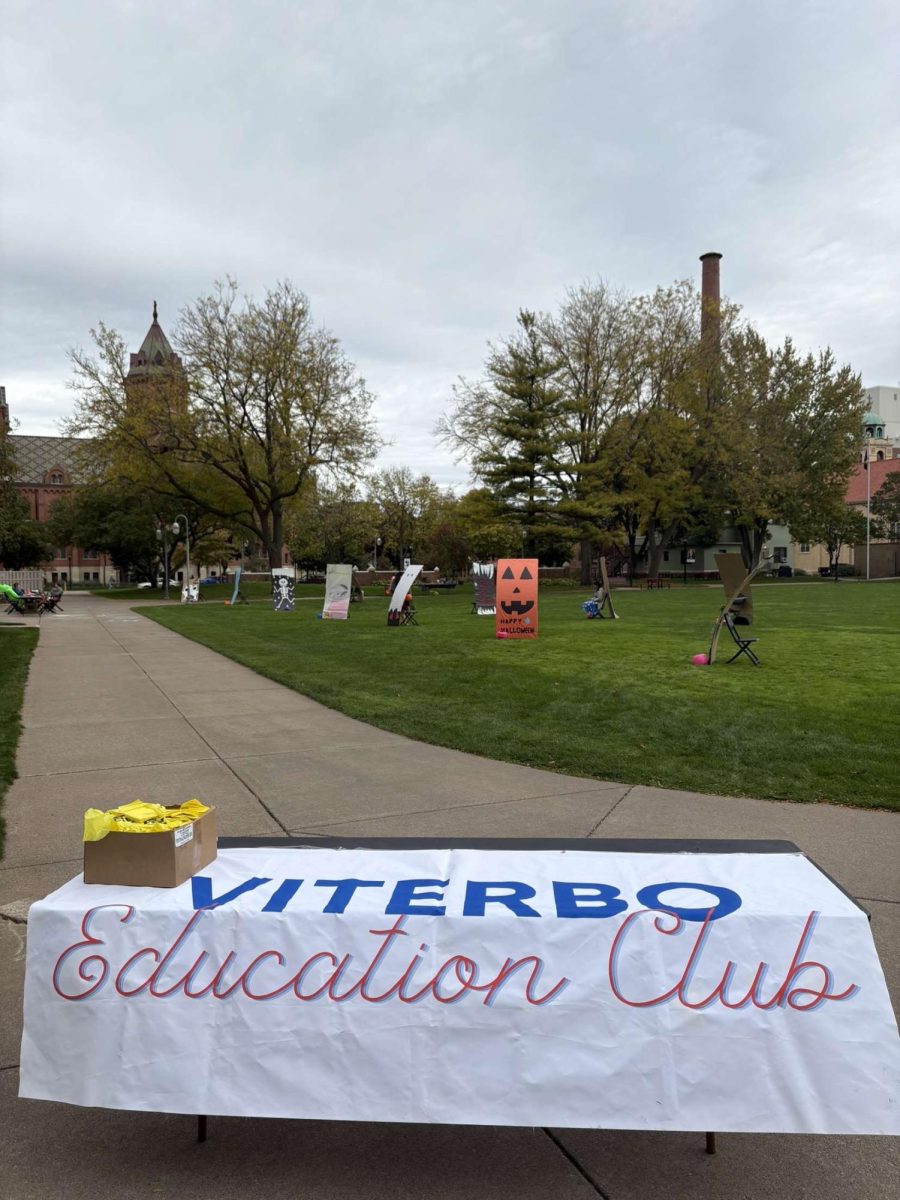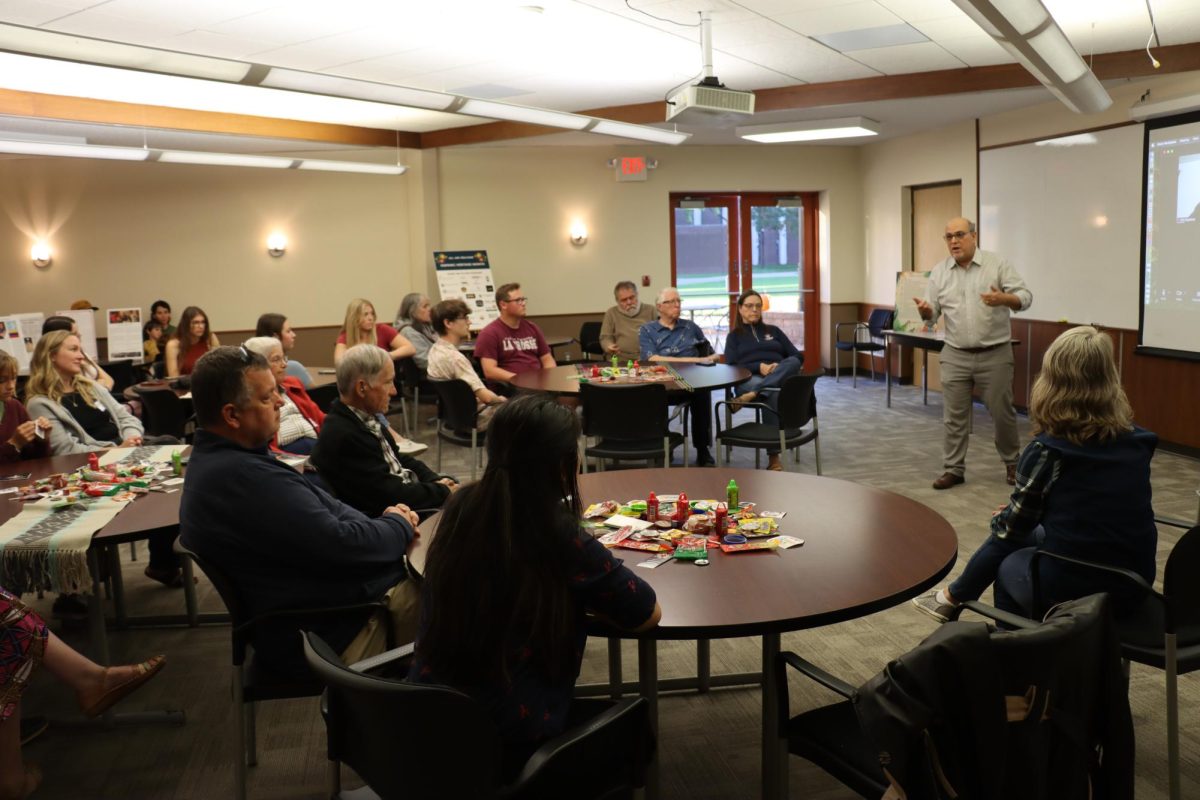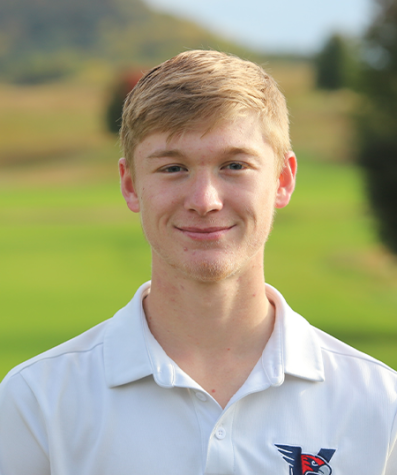=The Reinhart Institute’s student fellowship program is the only one of its kind on campus, and the members are finding value in the individualized experiences it provides. Seventeen students of diverse backgrounds have been part of the fellowship in its three-year history, and they have been exposed to active servant leadership experiences, participating in on-campus events and conversing with local business leaders on a more personal level.
Dr. Richard Kyte is the Director of the D.B Reinhart Institute, and he has been integral in the development of the fellowship program. By bringing in students of varying backgrounds, he influences future leaders across industries. He sees leadership as an active process rather than an inherited trait, saying, “Leadership is something that you can study, but then you have to learn it thoroughly through practicing.”
Fellows have the chance to deepen their relationship with leadership by meeting and conversing with campus speakers and presenters. Fellows receive exclusive opportunities to attend dinners with certain speakers, but any student can attend their presentations.
Kyte highlighted the importance of individual’s stories as a developmental tool for students, saying, “I think ethics is best taught by looking at how living with different kinds of character traits influences your life… It’s really important to hear consistent messages from different people.” One of the servant leadership master’s students, Gwen Schroeder, gives students similar advice. She states, “I would definitely recommend taking advantage of the presenters that come to campus… I guarantee that you will walk out having learned something.”
Many student fellows mentioned the criticality of the fellowship’s quarterly Advisory Council meetings, where community leaders come to discuss the future of the institute, including events and projects. They credited it with connecting them with local businesses and having the ability to see how councils work gave them more opportunities to learn how influential groups can function.
Something new in this year’s fellowship is the mentorship program. Mentors work alongside students to develop their personalized skills, ranging from writing to web development and social media. Kelcie Karweick states, “It’s definitely nice to have something tailored to what you want to do in the future.” Alyamr Ismaili feels that the fellowship has given him strong developmental experiences, too. He says, “I’ve taken risks on things that I really haven’t been doing before.” Karweick echoed these thoughts, saying, “It’s a learning process, but I’d rather learn now in this opportunity than learning what I’m doing on a full-time job.”
Ismaili has been working on the website and event promotion and has been given freedom in how he does so. “It’s basically a job; you’re getting paid for it and you have responsibilities but it’s way less restrictive, so there’s less pressure on your head,” he says. Ismaili has grown into his role, taking on unexpected opportunities. He elaborates, “When I originally went to it and I gave it a shot and had an open mind going into it, I felt like it helped me a lot.”
Abbey Fedie is in her third year with the fellowship, and she has found it’s given her new perspective on her college experience. She says, “Sometimes you’re caught up talking about school or work all the time so it’s a nice break away… I’ve really enjoyed that.” Fedie says to students, “It’s not too much of a time commitment, but it is something that helps you get involved.”
Some Viterbo faculty members have been working on projects of their own connected to the fellowship. Terresa Bubbers has been working to educate youth sports coaches in leadership training, and she presented her findings at the last quarterly meeting. The project is beginning to go national, working with USA Hockey. She says, “The fellowship has been wonderful. It’s motivated me to keep moving with my research on it.”
Faculty leaders of the group see it expanding in coming years and they invite students to apply. Jenny Waters, an administrative assistant with the Reinhart Institute, says, “The fellowship is definitely a valuable asset to the Ethics Institute… I’d love to see a steady and health growth to [the program].” Kyte envisions, “I’m hoping at some point [that] the fellows are established enough that we can do something like a field trip to another city or organization where we can interact with some leaders in another environment and learn from them.” Jill Miller, a program coordinator with the institute, believes that the fellowship is likely to develop as well, saying, “The student fellowship initiative will continue to grow stronger each year as we build on previous successes from the fellows and incorporate their recommendations.”
Schroeder credits the fellowship with developing her personally and believes it provides a valuable community need. She says, “It’s just changed the culture of workplaces in our area and that’s not something that I think is easy to come across in other towns… Regardless of if we’re going to work, or we’re going into conversation with a friend or with a stranger, the core of who we are and the values that we bring into those areas reflect who we are.”


